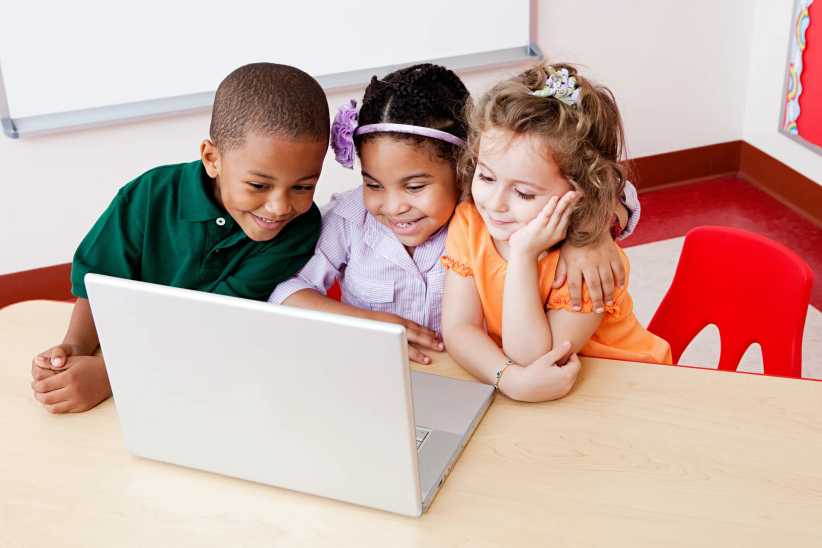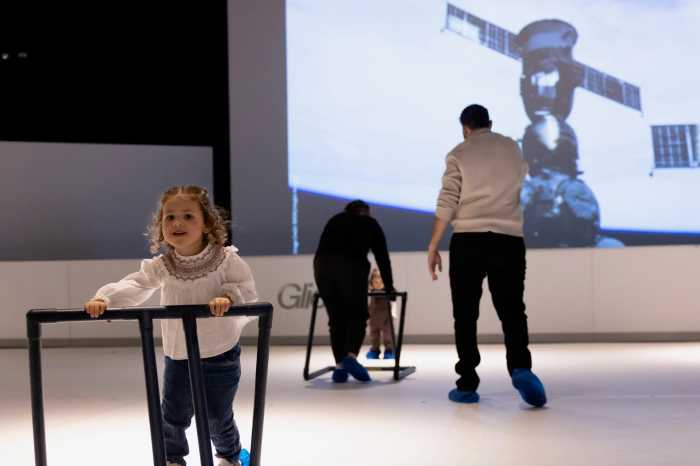
Twenty-something years after studying French in college, I can barely understand, much less speak, read, or write, a word of French. But as someone who, like most New Yorkers, is appreciative of other languages and cultures, I sure wish I could. I still hold out hope that I’ll re-learn French someday, but it certainly never occurred to me that even without classes at the Alliance Francaise, it’s possible for a person who is monolingual like I am to raise a bilingual child. When Naomi Steiner, MD, a developmental-behavioral pediatrician in Boston, invited me to work with her on her new book, 7 Steps to Raising a Bilingual Child, I found out there were a lot of things about bilingualism I didn’t know. Here, Steiner, who is raising her own two children to be multilingual, shares some advice for anyone hoping to teach his or her child a second language.
What is bilingualism, exactly?
Instead of complicated definitions, as a developmental-behavioral pediatrician, I prefer to take a practical and inclusive approach. If you understand a second language without being able to speak it, that’s called passive bilingualism. The next level of proficiency is being able to speak the language, at least enough to be able to carry on a conversation. The highest level of proficiency is to master reading and writing in the second language. Any level of proficiency can be used as a stepping stone to achieve the next.
What sets bilingualism apart from other hot, new developmental trends that have burst on the scene and then faded away?
Interest in raising children bilingual is not going to fade away because globalization is here, and parents know that. Parents, whether they are monolingual or bilingual, realize how important it is for their children to know more than one language and to be aware of other cultures. And if you take a look, commercial TV is reacting to this growing public sentiment by offering shows like “Dora the Explorer.”
When is the best age to begin learning a second language?
Research shows the earlier the better, because with age, there is a decline in the brain’s ability to pick up a language. However, it is never too late: Adults can and do learn foreign languages. But I always tell parents to just start, because putting it off often means never starting.
Even in a cosmopolitan city like New York, many of us are monolingual in English. Can a monolingual English parent raise a bilingual child?
Absolutely, regardless of whether you, the parent, are monolingual or bilingual, your child’s brain is ready to learn two languages. As a monolingual parent, however, you will need more outside support to provide sufficient “language input” for your child. But living in a city like New York puts you at great advantage. If you regularly use a babysitter or daycare provider, my number one suggestion is to find one who speaks the language you’d like your child to learn. I have interviewed a number of monolingual parents whose children have become proficient in Mandarin Chinese thanks to their babysitters. I also encourage parents to learn the language along with their children because they feel more part of the process that way, which is important.
Will a babysitter be enough?
The pace at which your child picks up the second language will be proportional to the amount of exposure to that language. I encourage parents to shift activities to the second language. Watch DVDs only in French, for example, or do computer activities in Spanish. My favorite tip for finding activities in your chosen language is to go to the web sites of TV stations in the country where your chosen language is spoken. Those sites offer an array of activities, stories, and games that are educational and age-appropriate, and may even feature characters your child is already familiar with.
What about the foreign language classes offered in schools?
Unfortunately, many US public school foreign language programs are still one step behind ensuring that a child graduates with the ability to speak a second language fluently. Usually, classes don’t start in early elementary grades, and frequently the sequencing from elementary to middle and then to high school is not continuous. Finally, the number of hours invested is insufficient. I strongly encourage parents to become informed about the foreign language options that are available in their school district and to speak up if they would like to see changes made.
How long does it take for a child to learn a second language?
It depends on the child, but usually if a child is immersed into the language she will be able to chat well after around one or two years. To master the language at the academic level, enough to be able to succeed in a classroom setting where the instruction is given in that language, however, you need to add around five years.
What are some things that can happen early on in the process that tend to discourage parents?
Don’t be discouraged if your child wants to speak English all the time instead of the second language. This is normal from a developmental perspective—your child wants to do what he sees his friends doing. So take some time to explain to him why this is important to you, be honest, and be prepared to repeat yourself. Your child will come around, and be proud of being bilingual.
Any tips that can help parents keep up the sustained effort that bilingualism requires?
Remind yourself that raising a bilingual child is a parenting style and choice that you have made because you love it. As a practical matter, it helps to reach out to other families who are also raising their children bilingual and exchange tips, create play dates, and later on sign your children up for a weekend language school (these are often non-profit). This is not so difficult to do in NYC, and if you are connected the group energy will keep you and your children going.
In the end, it still seems like a big undertaking. Why is it worth the effort?
Recent research clearly shows that children who learn a second language enjoy language benefits (including enhanced phonetic awareness), academic advantages (even in math!), and a more developed thought process, which helps with abstract thinking and problem solving. Basically, second language learning gets the brain machinery going. Additionally, children who learn a second language show an increase in cultural awareness. The question I usually ask parents to ask themselves is: “Why is it important to me to raise my child bilingual?” Because if it is only labor and no love, then you will feel the work. However, while most parents acknowledge that it is difficult to be tracking down books, DVDs, and computer games in a second language, they also express what a fabulous and enriching journey this is.













